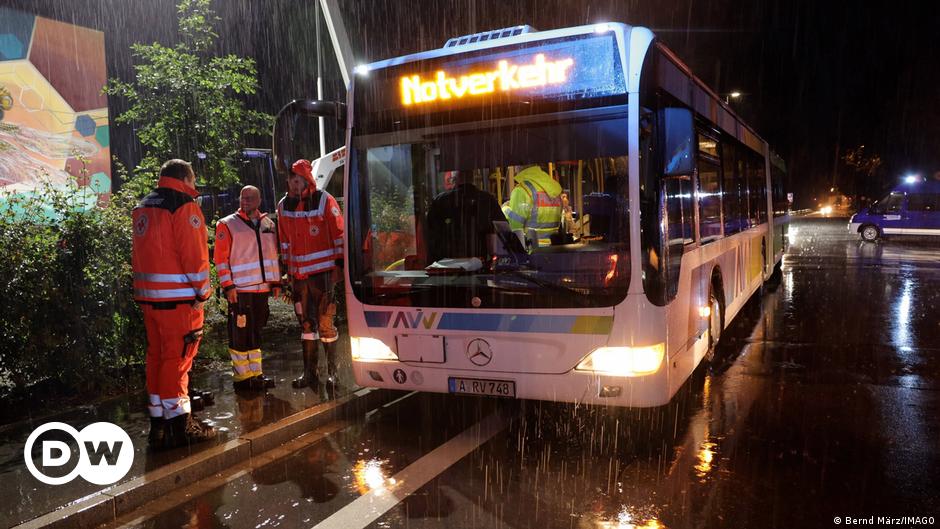- cross-posted to:
- globalnews@lemmy.zip
- cross-posted to:
- globalnews@lemmy.zip
cross-posted from: https://lemmy.zip/post/16572873
The southern states of Bavaria and Baden-Württemberg have been inundated, causing dam bursts and prompting dramatic rescues. States of emergency have been declared in several areas with more heavy rain expected.
Archived version: https://archive.ph/bF7J7



Wasn’t I just reading articles about how awful drought was afflicting Germany?
What are the watersheds in the affected area?
Looks like the water that falls in Munich ultimately winds up in the Danube.
The water that falls in Stuttgart ultimately winds up in the Rhine.
kagis
https://www.icpdr.org/tasks-topics/topics/droughts/severe-droughts-danube-river-basin
https://www.bbc.com/news/world-europe-62519683
EDIT: That was 2022. What about 2021?
https://en.wikipedia.org/wiki/2021_European_floods
And that was the Rhine.
How about 2023?
https://www.euronews.com/2023/12/29/floods-in-europe-hungary-netherlands-and-lithuania-brace-themselves
I feel like there isn’t a lot of middle room between “too much rain” and “too little rain” here.
Extreme drought makes the issue worse, when the surface is too dry it does not absorb water quickly, meaning you get more runoff. If feels counter intuitive, but it’s true.
You might have noticed this when watering a completely dried out plant. The water stays on the surface of the soil longer.
Not quite correct, if I remember correctly dry soil adsorbs more water and quicker (by default) than waterlogged soil. But when is been dry for a long time a hydrophobic film forms, causing a temporary delay in water adsorption. I think it can impact flash flooding, but it washes off fairly quickly and then adsorption returns to expected.
Yup, we are experiencing more extreme weather situations. Until 2022 it was unusually dry, now 2023 and 2024 had relatively more rain, sometimes in a very short timespan causing flooding.
It’s 2024 right now ;)
Yep, that’s what climate change brings us. Extreme weather fluctuations in a short amount of time. Just like it was predicted.
At least in my area in NRW (west Germany) we’ve had pretty consistent rain over the last couple years. Haven’t seen this much of it in way over a decade. I think the most affected drought regions were in the east though.
First it was dry, then wet :)